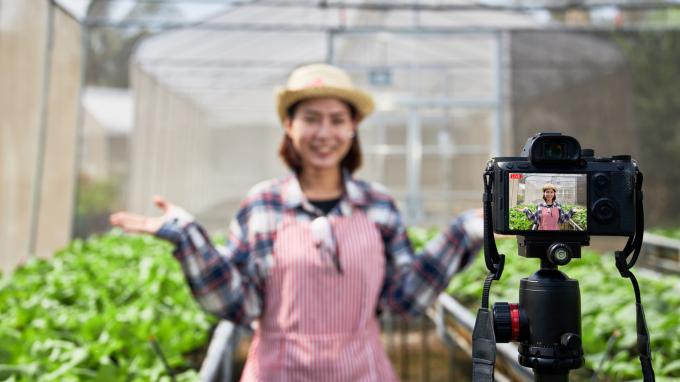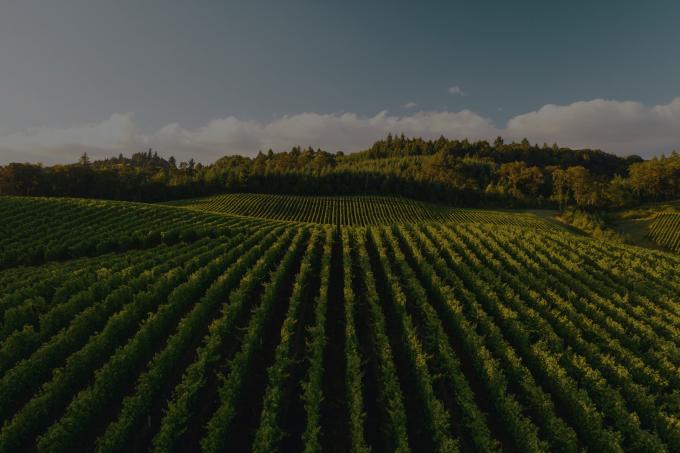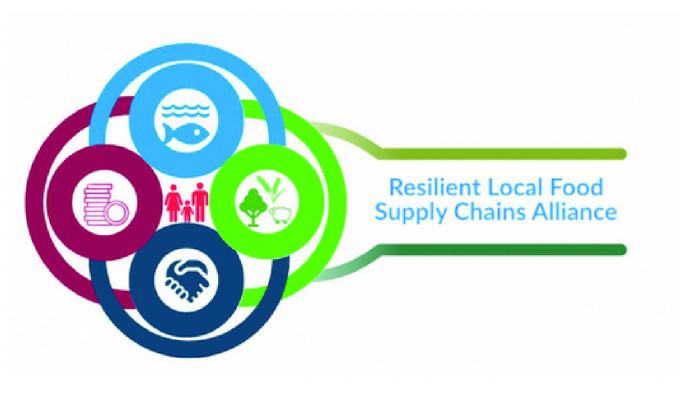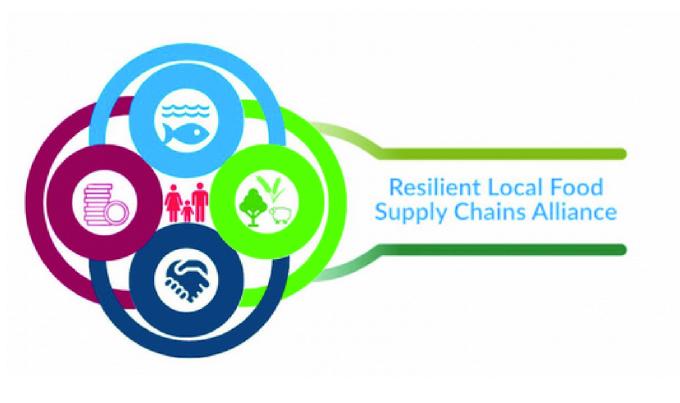GOOD PRACTICE

Building resilient urban agriculture to strengthen Gaza's economy through the event-organizing and dialogue-boosting platform – GUPAP
Palestine
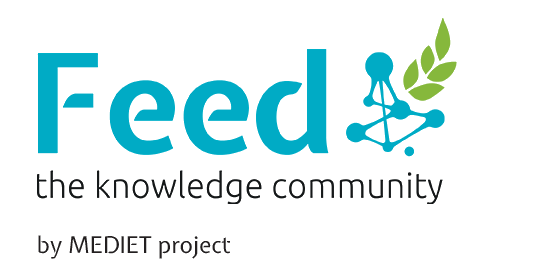
In the context of Gaza, increasing and protecting income for small-scale urban farmers is a challenge. Through the Gaza Urban and Peri-urban Agriculture Platform (GUPAP), agricultural actors and local institutions (about 80 members) collaborate to create a policy environment conducive to sustainable agricultural value chains. The main accomplishment of GUPAP lies in the review and facilitation of five policies regarding urban agriculture and rights for women agripreneurs. Enriched by standardized controls for national products, better market placement for women’s dates and dairy products, improved advocacy on women’s rights, and more.
You must be registered to see all the content
In Gaza, the Urban and Peri-urban Agriculture (UPA) development project is aligned with a broader vision of supporting a more resilient agricultural sector that seeks to contribute to Gaza being more food secure, less dependent and vulnerable, and with its population having improved access to sustainable jobs and income, improved livelihoods and a safer environment. This will be achieved by the following strategies:
- Increasing local production and the competitiveness of local products for a local market.
- Reducing dependency on external imports and energy, and promoting and strengthening Gaza-based service supply and agricultural training and extension.
- Facilitating a more favourable institutional and policy environment in which agricultural value chains operate and are sustained.
The Gaza Urban and Peri-urban Agriculture Platform (GUPAP) is seen as the main platform through which the policy objectives of the project can be implemented: it fulfils the need for a multi-stakeholder, interactive and participatory forum that brings together all key actors involved in the development of a resilient Palestinian agricultural sector in the Gaza Strip. However, the institutionalization of the GUPAP still needs to be reinforced.
The GUPAP seeks to see longer-term development and institutionalization of the platform to actively and successfully network and share knowledge, information, experiences and cooperation (locally, regionally and internationally) on urban and peri-urban agriculture to develop an agricultural sector featuring sovereignty and resilience among diverse stakeholders (government and non-governmental organizations, private sector institutions, research institutions, agricultural funding institutions and influential players in agricultural value chains) in the Gaza Strip. All members of the platform are committed to its comprehensive development vision, which is recognized locally, regionally and internationally as an interactive and participatory space to facilitate strategic planning, advice, lobbying and advocacy for policies of urban and peri-urban agriculture.
Needs for urban agriculture initiatives often include addressing food insecurity, poverty, unemployment, limited access to nutritious food, and inadequate agricultural infrastructure. Baseline data may include indicators such as food consumption patterns, poverty rates, unemployment rates, nutritional status, and available land for cultivation.
The Gaza Urban and Peri-Urban Agriculture Platform (GUPAP) consists of a multi-stakeholder, interactive and participatory space that brings together key actors involved in the development of a resilient Palestinian agricultural sector in the Gaza Strip. GUPAP is currently made up of about 80 members, including national and local government institutions; non-governmental civil institutions; women organizations/ cooperatives and activists, private sector initiatives/ actors/ stakeholders; research and educational institutions; micro-finance institutions, urban women agripreneurs’ forums, and other relevant actors.
Over the past years, GUPAP has built institutional capacity and collaboration among the GUPAP members, resulting in major achievements. This includes the review and facilitation of five policies relating to local and national urban and peri-urban agriculture development and rights of women agripreneurs, in addition to the following achievements:
- MoA/MoNE assessments of protection of national products;
- Women’s dates and dairy products & investigation into tariffs for imported foreign dairy products and quota placement on imported powdered milk;
- the activation of the Committee for the Development of the Date Palm Sector (CDDPS);
- an advocacy and influencing campaign on women’s agricultural rights;
- reactivation of the Consumer Protection Association plan and launching of a ‘buy local’-campaign;
- GUPAP facilitated the community-led Urban Women Agripreneurs Forum (UWAF) as an empowering space that facilitated exchange and capacity sharing activities among its members and provided input into relevant strategies as part of our rights advocacy and influencing activism.
GUPAP continues to work with relevant civil society member organizations and municipalities to advocate for the integration and adaptation of the concepts and approaches of urban agroecology, gender justice/equity, urban family farming and food sovereignty, within national strategies and functions of the national institutions. These concepts have successfully been integrated in some local and national strategies, as well as in strategies of some local CSOs, which have also adopted the project’s participatory extension approaches.
Stakeholder mobilization involves engaging key actors such as community members, local authorities, NGOs, academic institutions, and relevant government agencies. It included conducting awareness campaigns, organizing community meetings, establishing partnerships, providing training and capacity-building programs, and involving stakeholders in the decision-making process.
Achieving gender equity and empowering both men and women in urban agriculture initiatives is crucial for improving livelihoods. This can be done through inclusive approaches that provide equal access to resources, training, information, and decision-making opportunities. Gender-responsive strategies may include promoting women's participation in leadership roles, providing childcare support, addressing gender-based constraints, and ensuring fair access to land, finance, and markets. By addressing gender disparities, urban agriculture initiatives can create more equitable and sustainable livelihood opportunities for all community members.
This project, and Oxfam role with GUPAP to enhance policy strategies, draws on learning from Oxfam's wider experience in Gaza. It aims to move from emergency aid to longer-term, more sustainable development – and to enhance livelihoods and food security in a fragile context.
There is increasing recognition among Gazan stakeholders of the importance of urban agriculture approaches and practices.
The challenges in strictly following the ‘Markets for the Poor' (M4P) approach, where systemic changes are to be pursued as much as possible by facilitating market and business dynamics, have to be adapted to the very specific, socially and economically challenging two contexts of the Gaza Strip.
A significant shift in the project strategy – from direct implementer to the role of facilitator who stimulates the market – has already taken place. It has been noticed and understood that external interventions are by nature artificial and may influence the system either positively (development) or negatively (distortion).
In the context of Gaza, the concept of food security relates very much to economic access to food, rather than to food availability.
There is an increasing recognition and call from Palestinian professionals, organizations and ordinary people for more emphasis on economically sustainable and resilient development activities.
Past agricultural projects implemented by international and local stakeholders have mainly focused on production support projects; however, these have always limited direct intervention to a small group of beneficiaries. This proposed urban agriculture programme will have a strong focus on local processing and local marketing as a key entry point in the value chain.
Urban agriculture practices can enhance community resilience in various ways. They provide a local and reliable food source, reduce dependence on external markets, and contribute to food security. By engaging community members in agriculture, it fosters a sense of empowerment, self-sufficiency, and social cohesion. Additionally, urban agriculture can improve environmental sustainability by promoting green spaces, reducing food miles, and mitigating the impact of climate change.
Urban agriculture can be particularly important for communities living in areas under siege, such as Gaza, due to the following reasons.
Food Security: Urban agriculture allows communities to grow their own food locally, reducing dependence on external food sources. In a situation of siege or limited access to markets, having a local food system becomes crucial for ensuring food security and reducing the risk of hunger.
Resilience to Disruptions: By diversifying food sources and creating local food systems, communities in Gaza can become less vulnerable to disruptions in supply chains caused by the siege. Urban agriculture provides a decentralized and self-sustaining food production system that can continue to function even during times of crisis or when access to external resources is limited.
Economic Empowerment: Urban agriculture initiatives can offer income-generating opportunities for community members, allowing them to improve their livelihoods and reduce their dependency on external economic systems. This can be particularly important in a situation of siege where economic opportunities may be scarce.
Environmental Benefits: Urban agriculture practices can contribute to ecosystem services such as water infiltration, which helps mitigate flood risks, especially in areas prone to water-related issues. Additionally, green spaces created through urban agriculture can help improve the microclimate by reducing heat island effects and improving air quality.
Community Cohesion: Engaging in urban agriculture can foster a sense of community, collaboration, and self-reliance. It can bring people together, encourage knowledge sharing, and provide a sense of purpose and resilience during challenging times.
Considering these factors, urban agriculture can be highly important for a community living under siege like Gaza. It provides opportunities for food security, economic empowerment, environmental sustainability, and community resilience in the face of external challenges and limited resources.
Given the specific context of Gaza, where economic opportunities are very limited, the project team has reached the conclusion that any market-oriented urban agriculture programme should focus on promoting a ‘resilient local development approach' and making the best use of what is locally available. Markets for agricultural production play an important role in this, despite the imposed import and export restrictions that severely limit their development. Greater networking, coordination and exchange with relevant stakeholders are needed to shift the focus away from emergency aid only towards the integration of long-term economic development policies and initiatives, despite the difficult context.
The three-year project 'Facilitating Urban and Peri-urban Agriculture in Gaza' is funded by the Swiss Agency for Development and Cooperation (SDC), and implemented by Oxfam and the RUAF Foundation. The project is implemented with the aim to increase income for men and women engaged in small-scale urban and peri-urban agriculture in the Gaza Strip. The project's inter-related specific objectives (outcomes) revolve around service supply markets, extension services and enabling policy and governance frameworks.
Under the project's outcomes, new and revised policy strategies and measures for urban agriculture aimed at supplying the local market are expected to be developed and taken up by local and national government institutions. This aspect of the project is being implemented in close coordination with the Gaza Urban and Peri-urban Agriculture Platform (GUPAP) and its 50 member organizations – key stakeholders who represent various sectors including government, the private sector, civil society, universities and agricultural funding institutions.









